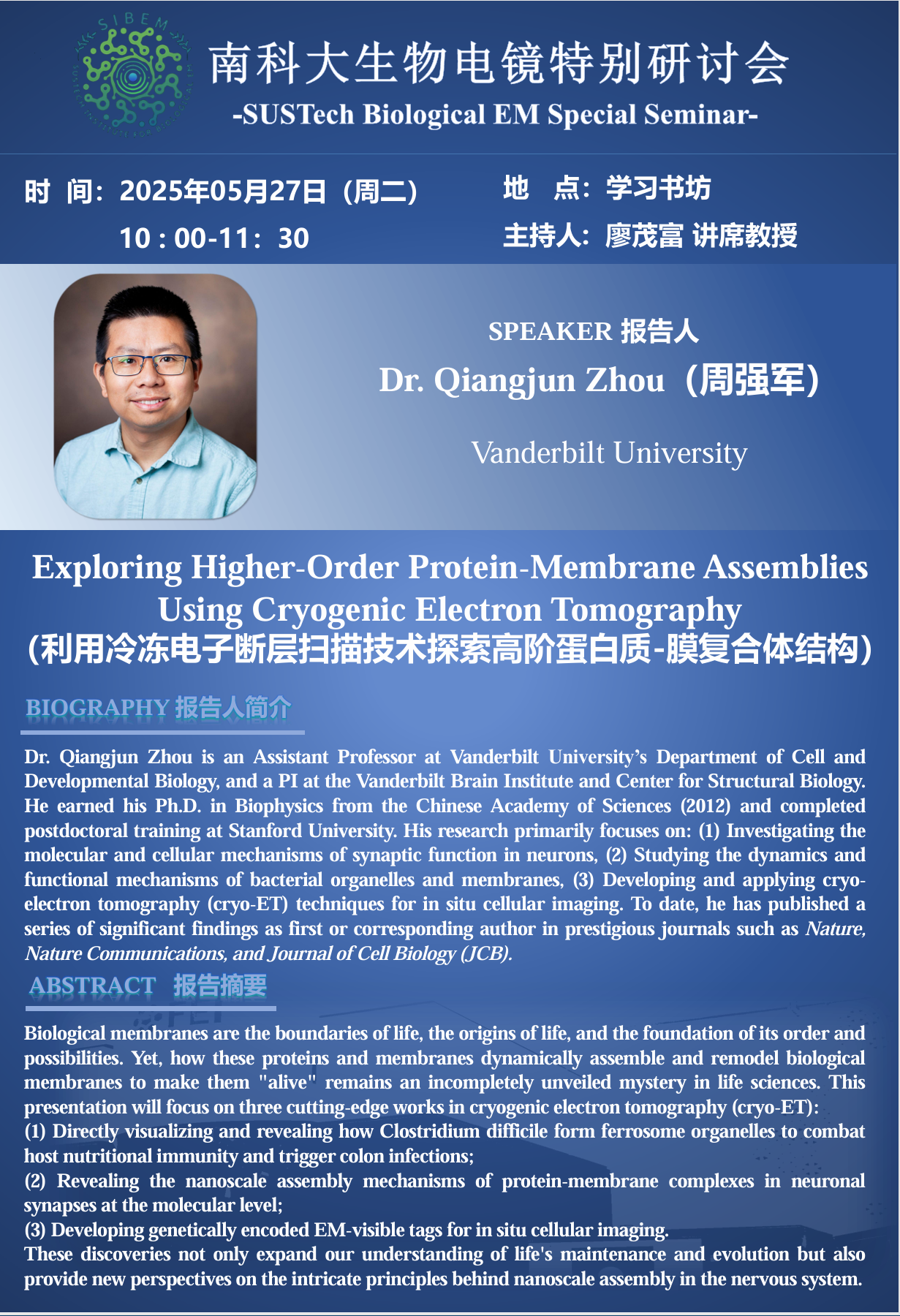
Speaker: Prof. Qiangjun Zhou
Time: May 27, 10:00 - 11:30 am
Venue: The Learning Studio
Topic: Exploring Higher-Order Protein-Membrane Assemblies Using Cryogenic Electron Tomography
Speaker: Prof. Qiangjun Zhou
Host: Prof. Maofu Liao
Time: May 27, 10:00 - 11:30 am
Venue: The Learning Studio
Abstract:
Biological membranes are the boundaries of life, the origins of life, and the foundation of its order and possibilities. It is because of biological membranes that life possesses complexity, evolution, and infinite potential—proteins are both the builders and the executors of these membranes. Yet, how these proteins and membranes dynamically assemble and remodel biological membranes to make them "alive" remains an incompletely unveiled mystery in life sciences.
This presentation will focus on three cutting-edge works in cryogenic electron tomography (cryo-ET):
(1) Directly visualizing and revealing how Clostridium difficile form ferrosome organelles to combat host nutritional immunity and trigger colon infections;
(2) Revealing the nanoscale assembly mechanisms of protein-membrane complexes in neuronal synapses at the molecular level;
(3) Developing genetically encoded EM-visible tags for in situ cellular imaging.
These discoveries not only expand our understanding of life's maintenance and evolution but also provide new perspectives on the intricate principles behind nanoscale assembly in the nervous system.
Introduction:
Dr. Qiangjun Zhou, tenure-track Assistant Professor in the Department of Cell and Developmental Biology at Vanderbilt University, and Principal Investigator at the Vanderbilt Brain Institute and Center for Structural Biology.
Dr. Zhou graduated from Central South University in 2006 and earned his Ph.D. in Biophysics from the Institute of Biophysics, Chinese Academy of Sciences in 2012. From 2013 to 2019, he conducted postdoctoral research in the laboratories of Prof. Axel Brunger and Prof. Thomas Südhof at Stanford University, where he was awarded the NIH K99/R00 Pathway to Independence Award. In 2020, he joined Vanderbilt University and received the "Neurodegenerative" TIPS Initiative Award as well as NIH R01 funding.
His research primarily focuses on: (1) Investigating the molecular and cellular mechanisms of synaptic function in neurons; (2) Studying the dynamics and functional mechanisms of bacterial organelles and membranes; (3) Developing and applying cryo-electron tomography (cryo-ET) techniques for in situ cellular imaging.
To date, he has published a series of significant findings as first or corresponding author in prestigious journals such as Nature, Nature Communications, and Journal of Cell Biology (JCB).